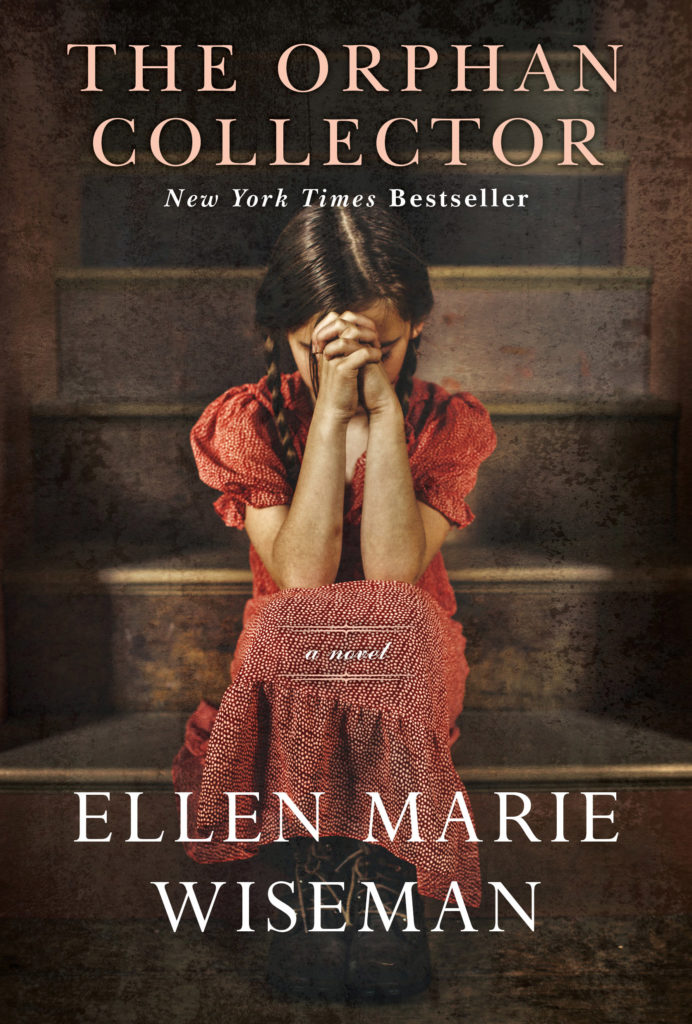The Orphan Collector
 Buy the Book:
Buy the Book:The River's End Bookstore, Signed Copy
Amazon
Barnes & Noble
IndieBound
Books-A-Million
Kobo
Recorded Books
Published by: Kensington
Release Date: August 4, 2020
Pages: 304
ISBN13: 978-1496715869
Synopsis
Ellen Marie Wiseman, acclaimed author of What She Left Behind and The Life She Was Given, weaves the stories of two very different women into a page-turning novel as suspenseful as it is poignant, set amid one of history’s deadliest pandemics.
In the fall of 1918, thirteen-year-old German immigrant Pia Lange longs to be far from Philadelphia’s overcrowded streets and slums, and from the anti-German sentiment that compelled her father to enlist in the U.S. Army, hoping to prove his loyalty. But an even more urgent threat has arrived. Spanish influenza is spreading through the city. Soon, dead and dying are everywhere. With no food at home, Pia must venture out in search of supplies, leaving her infant twin brothers alone . . .
Since her baby died days ago, Bernice Groves has been lost in grief and bitterness. If doctors hadn’t been so busy tending to hordes of immigrants, perhaps they could have saved her son. When Bernice sees Pia leaving her tenement across the way, she is buoyed by a shocking, life-altering decision that leads her on a sinister mission: to transform the city’s orphans and immigrant children into what she feels are “true Americans.”
As Pia navigates the city’s somber neighborhoods, she cannot know that her brothers won’t be home when she returns. And it will be a long and arduous journey to learn what happened—even as Bernice plots to keep the truth hidden at any cost. Only with persistence, and the courage to face her own shame and fear, will Pia put the pieces together and find the strength to risk everything to see justice at last...
Download the discussion guide.
Praise
“Wiseman's blistering moving and profound novel, set against the devastating backdrop of the 1918 Spanish flu, hones in on an extraordinary exploration of the plight of immigrants, as two very different women grapple with finding, keeping, and changing their place in the world. Absolutely amazing.”
- Caroline Leavitt, New York Times Bestselling author of Pictures of You, Is This Tomorrow and Cruel Beautiful World
“This is such an emotionally intense story. I was gripped by young Pia’s journey to reunite with her siblings during a devastating historical era, when the Spanish flu snatched away so many innocent lives. With heart-rending tension, Ellen Marie Wiseman unfolds a tale of desperate hope, evil wrought by prejudice, and the unwavering love of family. Though it takes place a century ago, it also offers a timely reminder of how immigrants are tightly woven into America’s fabric.”
– Sarah L. Johnson, Booth Library (Charleston, IL)
“The Orphan Collector is the raw, emotion-filled roller coaster of a historical fiction story that you didn't know you needed to read. Lovers of historical fiction as a genre will enjoy this well-researched novel, but those of us who don't flock to stories about the early 1900s will enjoy it tremendously too.”
– Christie Johnston, Louis Bay 2nd Library (Hawthorne, NJ)
Chapter One
September 28, 1918
The deadly virus stole unnoticed through the crowded cobblestone streets of Philadelphia on a sunny September day, unseen and unheard amidst the jubilant chaos of the Liberty Loan parade and the patriotic marches of John Philip Sousa. More than 200,000 men, women, and children waved American flags and jostled one another for prime viewing space along the two-mile route, while the people behind shouted encouragement over shoulders and past faces to the bands, Boy Scouts, women’s auxiliaries, marines, sailors, and soldiers in the street. Planes flew overheard, draft horses pulled eight-inch howitzers, military groups performed bayonet drills, church bells clanged, and police whistles blew; old friends hugged and shook hands, couples kissed, and children shared candy and soda. Unaware that the lethal illness had escaped the Naval Yard, the eager spectators had no idea that the local hospitals had admitted over two hundred people the previous day, or that numerous infectious disease experts had pressured the mayor to cancel the event. Not that it would have mattered. They were there to support the troops, buy war bonds, and show their patriotism during a time of war. Victory in Europe—and keeping the Huns out of America—was first and foremost on their minds.
